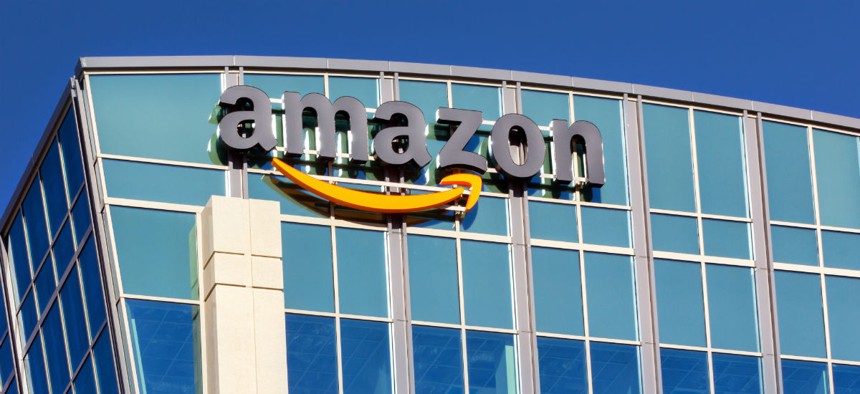How the Postal Service Can Keep Up With Amazon and Uber

Ken Wolter/Shutterstock
USPS is seeing its competitive advantages of large networks and high volumes diminished.
The U.S. Postal Service may soon find itself falling behind new developments in the shipping industry, according to new research from the agency’s auditor, as companies like Amazon and Uber are increasingly making package delivery and logistics a fundamental part of their business models.
While USPS is not inherently a provider of logistics, which the mailing agency’s inspector general defined in a white paper released Monday as “the transportation, storage, and distribution of goods, services and information, including the processes and systems required to support those activities,” it could become a part of its core business. Already a $4 trillion industry, the IG said the evolving dynamics of the logistics landscape is increasingly creating both “risks and opportunities” for the Postal Service.
USPS has for decades profited off its last-mile business, in which it makes the final leg of a delivery of packages from retailers or companies like UPS and FedEx. As Amazon has built up its own supply chain and companies like Uber, Google and Instacart make immediate deliveries available, USPS is seeing its competitive advantages of large networks and high volumes diminished.
Advancements made possible by new technologies and companies are “allowing small firms with limited geographic range and few assets to become competitive with traditional delivery companies, potentially overthrowing the old system under which cost savings were driven by economies of scale derived from large delivery networks,” the IG said.
E-commerce consumers are increasingly relying on asset-light new entrants into the logistics industry, the IG said, and companies are using consumer data for more efficient inventory levels. Amazon is buying fleets of trucks and planes and expanding its fulfillment center networks, while brick-and-mortar retail establishments are fulfilling delivery orders directly from their stores.
Demographic trends boosting urbanization, coupled with the new companies based largely in urban centers, may push USPS toward more expensive, less efficient rural and suburban delivery.
“In some cases, the Postal Service might end up being the only delivery company still providing critical and affordable services to people living in the most remote areas,” the inspector general wrote.
Companies like Uber are increasingly able to deliver at times to meet user needs, and make possible delivery directly to the consumers -- wherever they happen to be -- rather than to an address. Those companies will put pressure on legacy mailers the Postal Service to give customers better service at lower prices.
“In a landscape that will be so shaped by the high service levels Amazon wants to make more commonplace,” the IG wrote, “the Postal Service may find that its own customers demand more than ever before.”
Additionally, the auditors noted, as Amazon becomes more independent in its delivery, USPS may no longer be able to rely on the company to boost volume and revenue.
Simply relying on improving and increasing last-mile services, therefore, will likely be an “insufficient strategy to deal with the massive anticipated increase in e-commerce package volumes and increased competition,” the IG said.
The Postal Service is well positioned to offer many new services, however. The agency can lease existing warehouse space in urban centers to asset-light companies that need package storage space. E-commerce customers rely on return services, and while the Postal Service has some existing return programs, the IG said the agency can improve its redirection of packages. Better tracking information and expanded data collection would help USPS in that regard.
USPS can also use its existing infrastructure in rural and suburban areas -- where new entrants into logistics are less prevalent -- to provide first-mile pickups and inter-city deliveries. The Postal Service can benefit from new companies by “making up for gaps in their own resources, networks and competencies," the auditors said.
The mailing agency must, according to current statute, remain that; federal law prohibits USPS from offering any services it did not offer before 2006. As Congress looks to widen the net with which the Postal Service can capture revenue, the IG said it can take immediate steps to avoid being left behind by the evolving industry.
“While full end-to-end logistics services might currently be beyond the Postal Service’s legal authority,” the auditors said, “other posts and delivery companies around the world have demonstrated they have the inherent skills and that offering targeted, value‑added logistics services can be a significant opportunity for growth in this era of declining mail volumes.”
NEXT STORY: VA demo day showcases employee-driven innovation






